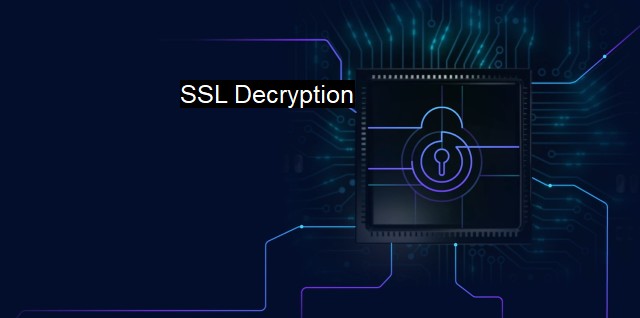What is SSL Decryption?
Understanding SSL Decryption Techniques and its Importance in Cybersecurity: The Role of SSL/TLS in Securing Communication Channels
SSL decryption is a crucial practice within the broader context of cybersecurity and antivirus tools employed to enhance and safeguard the overall systemic and network integrity against lingering, sophisticated security threats. Before delving into the concept of SSL decryption, it's essential to first understand SSL or Secure Sockets Layer protocol itself, which serves as the baseline for safe and secure internet communication.SSL refers to a standard security technology that primarily establishes an encrypted link between a client, your web browser, and a server – be it a website or a mail server. It makes sure that all the data passed between these two points remains private and integral. Thus, SSL becomes instrumental in protecting sensitive information such as login credentials, credit card information, or personal data from cybercriminals' prying eyes.
SSL encryption is like placing envelope protection on a piece of confidential communication – it conceals the actual message, allowing only the intended recipient to understand it by decrypting the message. Conversely, SSL decryption refers to the process of "unsealing" the envelope or decrypting the encoded information so that it makes sense. Cryptography includes both encryption and decryption, holding an immense prominence in cybersecurity and antivirus surroundings.
Now, to explore SSL decryption in-depth, it's crucial to realize that it's usually executed at the network perimeter by security devices like next-generation firewalls or intrusion prevention systems. These devices perform SSL Forward Proxy or SSL Interception to inspect the encrypted communications happening via SSL. Indeed, both these terms refer to the process of intercepting, decrypting, scrutinizing, re-encrypting, and finally sending the safe SSL traffic back to its original destination. Thus, SSL Decryption acts as an essential stage, dissecting SSL encrypted traffic to safeguard against malware or other persistent threats.
Here lies the entire premise and significance of SSL decryption which becomes conducive in ensuring an enhanced security framework. Without this technology, encrypted traffic (within an SSL tunnel) can effortlessly pass through security appliances, potentially containing devastating threats such as viruses, worms, or ransomware - completely undetected.
SSL decryption makes sure that

SSL Decryption FAQs
What is SSL decryption?
SSL decryption is the process of intercepting, analyzing, and decoding encrypted network traffic. It involves decrypting Secure Sockets Layer (SSL) or Transport Layer Security (TLS) encrypted data in order to inspect the content of the communication, ensuring it isn't malicious.Why is SSL decryption important in cybersecurity?
SSL decryption is an essential security measure since malware, including viruses, can be hidden within encrypted traffic. By decrypting and inspecting network traffic, cybersecurity experts can identify and prevent malicious attacks.Are there any ethical concerns with SSL decryption?
SSL decryption can be seen as an intrusion of privacy since it involves intercepting and decoding network traffic. However, when used for cybersecurity purposes, SSL decryption is typically performed on corporate networks or in public spaces where users have no expectation of privacy.How can SSL decryption be performed?
SSL decryption is typically performed using a specific appliance or software that can intercept and decrypt SSL/TLS traffic. These tools typically use a valid SSL certificate to decrypt the traffic, allowing the data to be analyzed before being re-encrypted and sent to the destination.| | A | | | B | | | C | | | D | | | E | | | F | | | G | | | H | | | I | | | J | | | K | | | L | | | M | |
| | N | | | O | | | P | | | Q | | | R | | | S | | | T | | | U | | | V | | | W | | | X | | | Y | | | Z | |
| | 1 | | | 2 | | | 3 | | | 4 | | | 7 | | | 8 | | |||||||